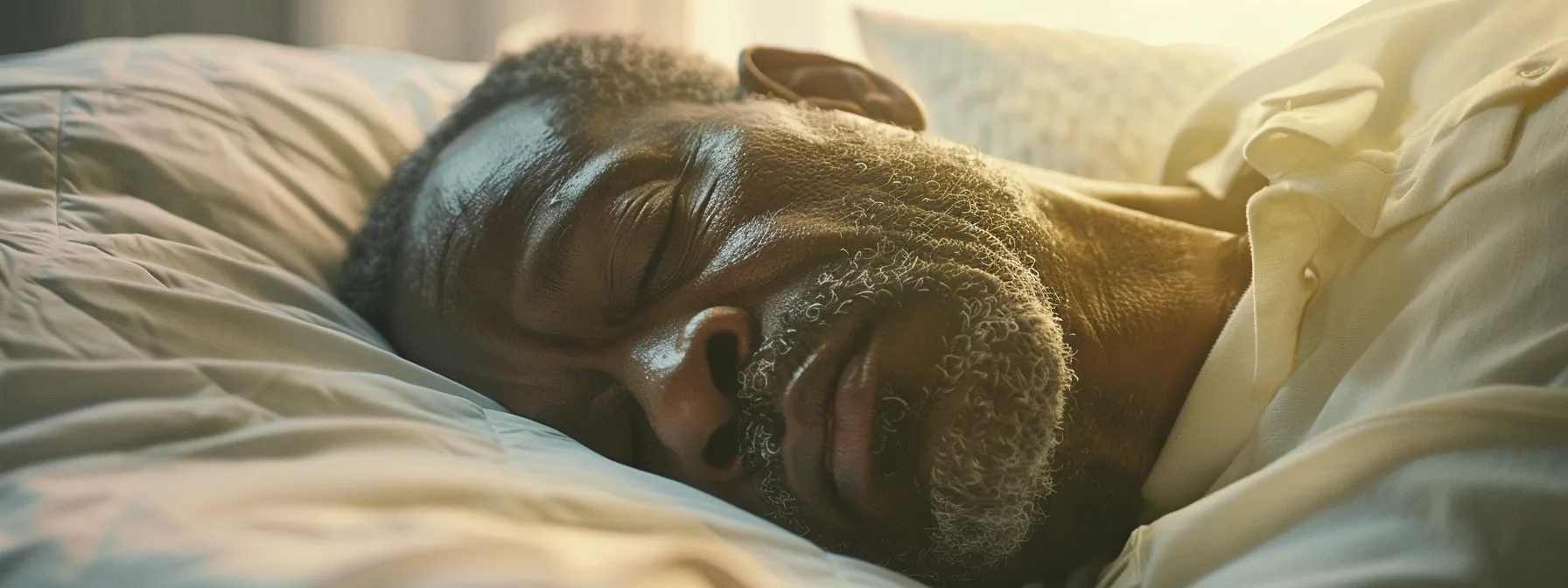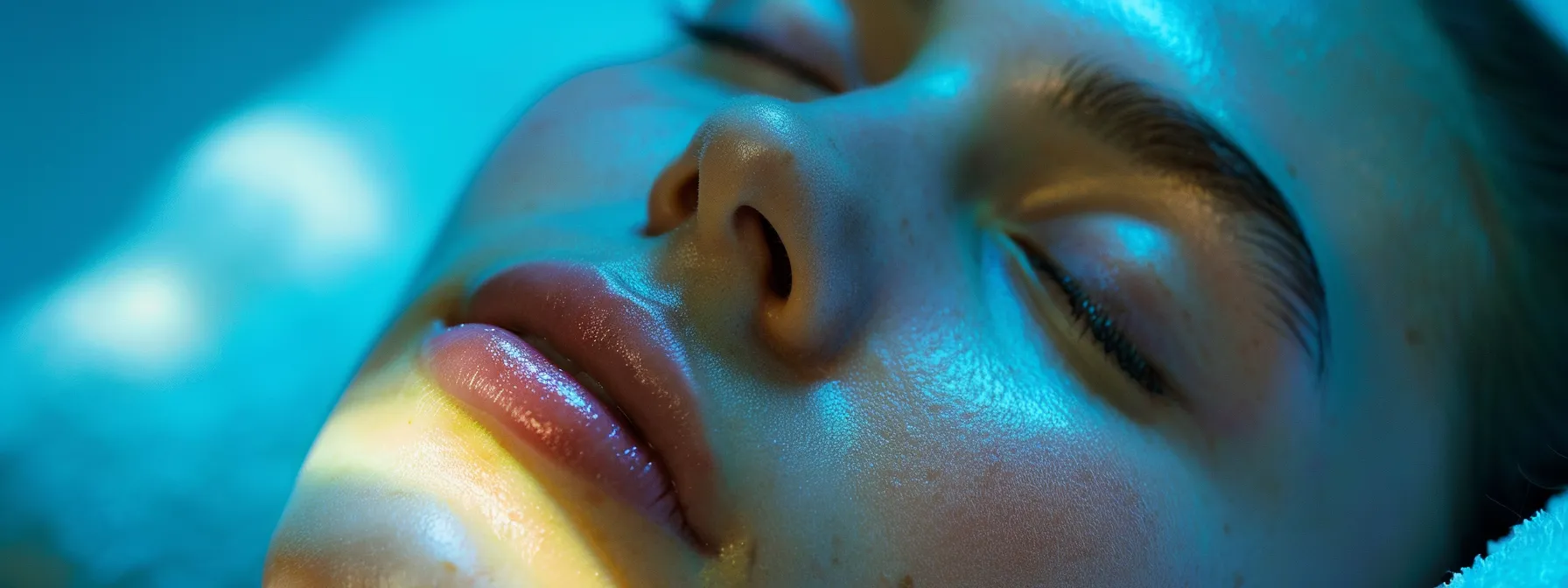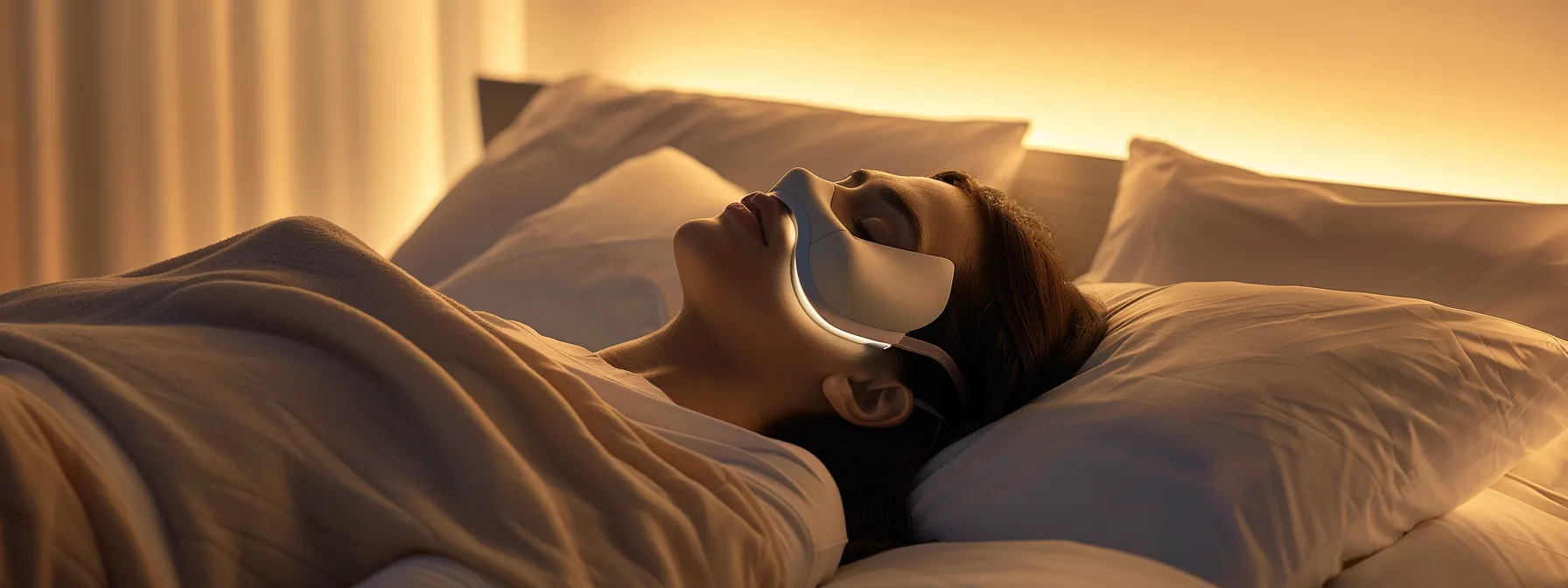Understanding Sleep Apnea in African Americans: A Health Crisis
Sleep apnea affects African Americans at higher rates than other groups, yet it often goes undiagnosed. This article explores the symptoms, causes, and health risks of sleep apnea in African American communities. We’ll discuss effective diagnosis methods, treatment options, and the importance of awareness and advocacy. By understanding this health crisis, readers will learn how to recognize sleep apnea symptoms, seek proper medical care, and potentially improve their quality of life. Our focus on thorax-related issues, surgical interventions, patient experiences, Medicaid coverage, and associated conditions like restless legs syndrome will provide valuable insights for those affected by sleep apnea.
Key Takeaways
- Sleep apnea symptoms in African Americans include persistent fatigue, loud snoring, and morning headaches
- Obesity significantly exacerbates sleep apnea symptoms and may require specialized treatment approaches
- Genetic factors and lifestyle choices contribute to increased sleep apnea risk in African American communities
- Limited healthcare access can delay sleep apnea diagnosis, emphasizing the need for culturally competent providers
- Community engagement and health education programs are crucial for raising awareness about sleep apnea
Recognizing the Symptoms of Sleep Apnea in African Americans

Recognizing sleep apnea symptoms in African Americans is crucial for timely diagnosis and effective health management. This section explores common signs in adults, the impact of obesity on symptom presentation, and sleep patterns indicating elevated risk. Understanding these factors can improve the efficacy of screening and treatment, considering unique aspects of skin and tissue in African American patients. If you suspect symptoms, request appointment with a healthcare provider. Additionally, expanding your practice to address these specific needs can lead to better patient outcomes.
Identify Common Signs of Sleep Apnea in African American Adults
African American adults experiencing sleep apnea often exhibit distinct symptoms that require attention. Persistent fatigue, despite adequate sleep hours, is a common sign that may impact daily life and work performance. Loud snoring, frequently accompanied by gasping or choking sounds during sleep, can be indicative of airway obstruction. Changes in mandible position or jaw discomfort upon waking might also signal sleep apnea. These symptoms, when persistent, warrant consultation with a healthcare provider to explore therapy options and potential coverage under health insurance plans. Patients may need to request appointment to discuss these concerns. The Food and Drug Administration has approved various treatments for sleep apnea, making early detection crucial for effective management. Healthcare providers are expanding your practice by incorporating these treatments:
- Excessive daytime sleepiness
- Morning headaches
- Difficulty concentrating
- Mood changes or irritability
- High blood pressure
Understand the Impact of Obesity on Sleep Apnea Symptoms
Obesity significantly influences sleep apnea symptoms in African Americans, often exacerbating the condition. Excess weight around the neck and soft palate can obstruct airways, leading to more frequent breathing interruptions during sleep. This increased severity may require specialized masks for effective treatment. Internal medicine specialists often recommend weight loss as part of a comprehensive approach to managing sleep apnea and reducing the risk of associated complications like heart failure. Patients may request appointment for personalized treatment plans. Additionally, expanding your practice to include sleep apnea management can enhance patient care. Medicare coverage for sleep apnea treatments may vary based on the severity of symptoms and obesity-related factors:
Term: the evolution of dental sleep medicine
- Increased frequency of breathing pauses
- Louder and more persistent snoring
- Higher risk of cardiovascular complications
- Greater difficulty with CPAP mask fitting
- Potential need for more aggressive treatment options
Learn About the Sleep Patterns That Indicate Sleep Apnea Risk
African Americans experiencing sleep apnea often display distinct sleep patterns that signal increased risk. Frequent bouts of insomnia, coupled with loud, persistent snoring, can indicate underlying sleep health issues. Those who regularly wake up feeling irritated or unrefreshed, despite using a mouthguard, may need to request appointment to consult a sleep specialist. These patterns, when observed consistently, warrant further investigation to ensure proper diagnosis and treatment of sleep apnea, supporting efforts in expanding your practice.
Exploring the Causes of Sleep Apnea in African American Communities

Sleep apnea in African American communities stems from various factors. Genetic predisposition plays a significant role, while lifestyle choices like smoking can increase risk. Limited access to healthcare and insurance often hinders diagnosis and treatment. Healthcare providers may consider expanding your practice to improve access. Understanding these causes, from genetic markers to the impact of proper pillow support, is crucial for addressing this health crisis. Otorhinolaryngology specialists can provide valuable insights into managing sleep apnea effectively, and patients may request appointment to receive tailored care.
Examine Genetic Factors Contributing to Sleep Apnea Risk
Research has identified specific genetic factors that contribute to sleep apnea risk in African Americans. Studies show that variations in genes related to adenoid tissue growth and muscle control in the upper airway can increase susceptibility. These genetic predispositions, combined with other risk factors like hypertension, create a complex interplay that affects sleep health. Individuals concerned about their genetic risk can request an appointment with a sleep specialist to discuss personalized prevention strategies and treatment options.
Discuss Lifestyle Choices That Increase Sleep Apnea Likelihood
Certain lifestyle choices significantly increase the likelihood of developing sleep apnea in African American communities. Sleep experts emphasize that being overweight is a primary risk factor, as excess weight can obstruct airways and complicate breathing during sleep. Smoking and alcohol consumption also contribute to sleep apnea risk by irritating the throat and relaxing airway muscles. While oral pressure therapy and medication can help manage symptoms, weight loss remains a crucial preventive measure. The following table illustrates common lifestyle factors and their impact on sleep apnea risk:
Analyze the Role of Healthcare Access in Diagnosis
Healthcare access plays a crucial role in diagnosing sleep apnea among African Americans. Limited access to medical facilities and specialized sleep centers can delay identification of oxygen deprivation during sleep, which affects brain function and overall health. The unique soft tissue anatomy of African American patients may require tailored diagnostic approaches, emphasizing the need for culturally competent healthcare providers. Regular exercise and lifestyle modifications can help mitigate risk factors, but proper diagnosis remains essential for effective treatment. The following table illustrates the impact of healthcare access on sleep apnea diagnosis:
Understanding the Health Risks Associated With Sleep Apnea

Sleep apnea poses significant health risks for African Americans, affecting cardiovascular health, diabetes risk, and mental well-being. This section explores how obstructed airways, including the nostril and palate, impact these conditions. It also examines the role of weight management and potential stimulant use in managing symptoms, while considering the effects on tooth health and overall quality of life.
Investigate How Sleep Apnea Affects Cardiovascular Health
Sleep apnea significantly impacts cardiovascular health in African Americans, affecting the heart’s valve function and nerve signals. The repeated sleep airway transformations during apnea episodes strain the cardiovascular system, increasing the risk of heart disease. Studies show that individuals with untreated sleep apnea often develop high blood pressure, which places additional stress on the neck arteries and heart muscles. This chronic stress can lead to long-term cardiovascular complications, making early diagnosis and treatment crucial for overall health.
Explore Connections Between Sleep Apnea and Diabetes Risk
Research reveals a strong connection between sleep apnea and diabetes risk in African Americans. Physicians have found that individuals with untreated sleep apnea often have higher body mass indexes and experience disruptions in glucose metabolism, increasing their likelihood of developing type 2 diabetes. Lifestyle factors, such as diet and exercise habits, play a crucial role in managing both conditions. Health care providers often recommend comprehensive approaches that address sleep quality, weight management, and blood sugar control to reduce the risk of complications associated with these interrelated health issues.
Recognize the Mental Health Implications of Sleep Apnea
Sleep apnea can significantly impact mental health in African Americans, often leading to increased anxiety and depression. The chronic sleep disruption caused by this condition affects blood flow to the brain, potentially exacerbating mood disorders. Some patients have found relief through minimally invasive procedures like hypoglossal nerve stimulator implantation, which can reduce pain and improve sleep quality. Clinical trials have shown promising results in addressing both the physical and mental health implications of sleep apnea, offering hope for those struggling with this complex condition.
Evaluating Diagnosis Methods for Sleep Apnea

Diagnosing sleep apnea in African Americans involves various methods, from home tests to laboratory studies. These techniques assess factors like tongue position, jaw alignment, and pressure changes during sleep. Dental appliances may play a role in both diagnosis and treatment. Understanding the differences between testing options helps ensure accurate detection and effective management of this critical health issue.
Review the Testing Options for Sleep Apnea Diagnosis
Sleep apnea diagnosis in African Americans involves various testing options that measure airflow and monitor sleep patterns. Home sleep tests use portable sensors to collect information about breathing patterns, oxygen levels, and body position during sleep. Laboratory-based polysomnography provides more comprehensive data by monitoring brain waves, muscle activity, and heart rhythm. Both methods help identify risk factors and guide treatment decisions. The choice between home and lab tests depends on individual circumstances and the severity of symptoms:
- Home sleep tests: Convenient, less expensive, but may miss complex cases
- Laboratory polysomnography: More detailed, can detect other sleep disorders
- Wearable devices: Emerging technology for long-term sleep monitoring
- Overnight oximetry: Focuses on oxygen levels during sleep
- Multiple sleep latency test: Assesses daytime sleepiness
Analyze the Importance of Sleep Studies in Detection
Sleep studies play a crucial role in detecting sleep apnea among African Americans, especially those experiencing nasal congestion or unusual breathing patterns during sleep. These studies monitor inhalation and exhalation cycles, as well as any noise that might indicate airway obstruction. Patients can make an appointment with a sleep specialist to undergo these tests, which provide valuable insights into their sleep quality and potential health risks. By accurately measuring breathing patterns and oxygen levels, sleep studies help healthcare providers develop targeted treatment plans to address sleep apnea effectively.
Learn About Home Tests Versus Laboratory Tests
African Americans considering sleep apnea diagnosis have options between home tests and laboratory tests. Home tests offer convenience and can detect basic breathing issues, but may miss more complex cases involving alcohol use or nasal obstruction. Laboratory tests provide a comprehensive analysis of lung function and sleep patterns, crucial for expanding practice in sleep medicine. While home tests are less invasive, laboratory tests can identify drug-related sleep disturbances and evaluate nose and airway function more thoroughly.
Implementing Effective Treatment Options for Sleep Apnea

Effective treatment options for sleep apnea in African Americans range from lifestyle changes to medical interventions. Health care providers may recommend weight loss and throat exercises to improve sleep quality. CPAP therapy offers significant benefits for many patients, while surgical options are available for severe cases. The dental sleep medicine evolution has also introduced new treatments. Pulmonology specialists often collaborate with other experts to address related issues like type 2 diabetes.
Discover Lifestyle Changes That Can Improve Sleep Quality
African American patients can significantly improve their sleep quality through lifestyle changes, offering alternatives to traditional treatments. Doctors often recommend weight loss and regular exercise to reduce mouth and throat tissue obstruction during exhalation. Patients may also benefit from sleeping on their side, using a specially designed pillow to maintain proper head and neck alignment. These simple adjustments can complement medical interventions and enhance overall sleep health.
Understand the Benefits of CPAP Therapy for Patients
CPAP therapy offers significant benefits for African American patients with sleep apnea, effectively addressing airway obstruction during sleep. This medical device delivers continuous positive airway pressure, preventing the collapse of soft tissues like the uvula and supporting the hypoglossal nerve function. By maintaining open airways, CPAP therapy improves sleep quality, reduces daytime fatigue, and lowers the risk of complications associated with untreated sleep apnea.
Learn About Surgical Options for Severe Sleep Apnea Cases
For severe sleep apnea cases in African Americans, surgical options may be considered when other treatments like positive airway pressure therapy prove ineffective. These procedures aim to reduce airway obstruction by addressing factors such as excess weight or structural issues. Before recommending surgery, doctors typically conduct a thorough evaluation, including polysomnography, to assess sleep patterns and blood pressure. Some patients may benefit from procedures that target specific areas like the soft palate or address underlying allergies that contribute to breathing difficulties during sleep.
Promoting Awareness and Advocacy for Sleep Apnea

Promoting awareness and advocacy for sleep apnea in African American communities is crucial. This section explores engaging the community in discussions, participating in health education outreach programs, and supporting efforts to improve healthcare access. By focusing on machine usage, adherence to treatment, and involving surgeons, these initiatives aim to address the unique challenges faced by affected groups and enhance overall health outcomes.
Engage the Community in Discussions About Sleep Apnea
Community engagement plays a crucial role in raising awareness about sleep apnea among African Americans. Local health centers and community organizations can host informational sessions, inviting sleep specialists to discuss symptoms, risk factors, and treatment options. These events provide a platform for individuals to share their experiences and ask questions, fostering a supportive environment for those affected by sleep apnea. Engaging community leaders and healthcare providers in these discussions helps build trust and encourages more people to seek early diagnosis and treatment. The following table illustrates effective community engagement strategies:
Participate in Outreach Programs Focused on Health Education
Health education outreach programs play a vital role in raising awareness about sleep apnea among African Americans. These initiatives often involve healthcare professionals visiting community centers, churches, and schools to provide information on sleep health, risk factors, and treatment options. By participating in these programs, individuals can learn about the importance of quality sleep and how to recognize potential sleep disorders. These educational efforts help demystify sleep apnea and encourage more people to seek early diagnosis and treatment.
Support Efforts to Improve Healthcare Access for Affected Groups
Supporting efforts to improve healthcare access for African Americans affected by sleep apnea is crucial for addressing this health crisis. Community organizations and healthcare providers can collaborate to establish mobile screening units, bringing diagnostic services directly to underserved areas. Advocating for expanded insurance coverage of sleep apnea treatments and partnering with local clinics to offer reduced-cost consultations can help remove financial barriers to care. These initiatives aim to ensure that all affected individuals have access to the necessary resources for diagnosis and treatment:
- Mobile screening units in underserved communities
- Advocacy for expanded insurance coverage
- Partnerships with local clinics for affordable consultations
- Telemedicine options for remote consultations
- Community-based education on available healthcare resources
Conclusion
Understanding sleep apnea in African Americans is crucial due to its significant impact on cardiovascular health, diabetes risk, and mental well-being. Recognizing symptoms, addressing genetic and lifestyle factors, and improving healthcare access are essential steps in combating this health crisis. Effective diagnosis methods, ranging from home tests to laboratory studies, coupled with tailored treatment options like CPAP therapy and lifestyle changes, offer hope for better management. Community engagement, health education outreach, and improved healthcare access are vital in raising awareness and ensuring affected individuals receive the necessary care and support to address this critical health issue.
Take Your Practice to the Next Level with Ohl Consulting
Expanding your dental practice with sleep medicine can feel overwhelming—but it doesn’t have to be. At Ohl Consulting, we provide expert guidance and hands-on support to make the transition smooth, profitable, and stress-free. Our tailored approach ensures you and your team have everything you need to implement sleep medicine with confidence.
Here’s how we help:
- Customized Integration Plans: Tailored strategies to fit your practice’s unique needs.
- Staff Training & Education: Empower your team with the skills to succeed.
- Medical Billing Support: Navigate insurance and maximize reimbursements.
- Marketing Assistance: Reach the right patients and grow your sleep practice.
- Ongoing Mentorship: Continuous support as your program expands.
Don’t let uncertainty hold you back. Schedule a consultation today and start building a thriving dental sleep practice with Ohl Consulting!





